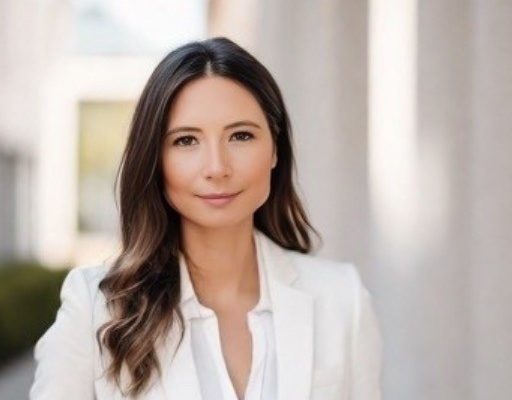In this edition of Pure People, we catch up with Ruby Tchan, our dynamic Integrated Communications Director, to delve into her impressive 15-year journey in the PR industry. Ruby shares her insights on the evolution of PR, the misconceptions about the field, and the exciting possibilities the future holds for the industry.
Ruby’s career began in the exciting world of luxury PR, where she honed her craft under the guidance of some of the influential women in the industry. Today, she finds her greatest fulfilment working with not-for-profits and advocacy organisations, where she continues to inspire change and shift perspectives.
Keep reading to learn about Ruby’s most memorable PR experiences, her advice to her younger self, and how she thinks PR can change the world.

Can you tell us a bit about your career journey and highlights so far?
I’ve been in the industry for more than 15 years now. At the end of my uni degree, all in the same day, I was offered a role as a broadcast presenter, another offer as a PR manager working between Bali, Australia and the US, and then later that day got accepted into a post-grad degree in Law. Being just 21, I chose the most fun-sounding option involving pearls, champagne, celebrities, and travel and have never looked back.
My career in my early 20s working in luxury PR was incredibly eye-opening and I was lucky enough to work under some of the most incredible women in publicity and strategy in the corporate world. Still, my highlights have been in the later years of my career. Working with not-for-profits, advocacy organisations, and innovators excites me; bringing new perspectives and depth to people’s views will always inspire and bring me a sense of fulfilment.
How has the PR industry changed throughout your career?
There have been obvious changes in the way traditional PR can be maximised and strategically timed across several channels like never before. However, when cutting through the noise – whether it be to land a strategic partner for a client, get them on the news agenda, or just ask the right question to uncover their headline – I would say the winning PR approach for high-calibre media results has remained the same.
Journalists are intelligent, critical thinkers, so we always need to think deeper about our story, build out our ‘why’ with compelling evidence, and deliver it in a way that makes perspectives shift and inspires the desired reaction.
Tell us about one of your favourite memories while working in the industry.
PR has given me the ability to think more positively about our ability to create change in the world. Media and the government aren’t dark arts. If you have a compelling case connected to an influential audience and can get it to the right people, you can make nearly anything happen. I’ve witnessed policies change overnight and people who deserve a voice find one through public relations.
If ‘present you’ could give ‘past you’ one piece of career advice for when you first started in the industry, what would it be?
The creativity and freedom to facilitate intelligent change are unparalleled in PR. Focus your efforts where you can do this and say no more.
Rules of IKAGAI:
- Do what you love
- Do what you’re good at
- Do what the world needs
- Do what you can be paid for
What do you think is the biggest misconception about PR from those not in the industry?
That it’s based on spin. We’d have no chance of working with journalists or securing stories if we didn’t think like a journalist and write for their audience when we pitch. If we want to reach our client’s goals, we need to think about the conflict or newsworthy angle. We need to ask ourselves, “Where are the facts to back this?” and “Is our response reasonable and new?
What is one thing that surprised you – or continues to surprise you – about working in PR?
In any industry, corporation or business there’s always a compelling narrative to be found. Once uncovered, these stories hold the ability to inspire audiences to think, feel and adapt. The leaders that share the sparks for these narratives, particularly those in the not-for-profit space, continue to surprise me with their dedication to a better world.
How do you think the PR industry will change in the next decade or so?
I think there will be a lot less client administration. When I started we would physically cut out newspaper articles and glue them in folders. AI can do this now and so much more, leaving more room, I hope, for human-led creativity.
What has been the most rewarding or exciting PR campaign you’ve worked on?
A global research-led campaign for the World Economic Forum, a tech client and a leading VC firm, tied to the future of learning and influencing government policy.
What is your favourite thing to do outside of work?
Go to the beach with my kids and family, have long lunches with girlfriends and read.
If you weren’t working in PR, what would you be doing?
I nearly branched out into a leadership role in tourism and wine before taking this role, so maybe something like that or even starting a business of my own. I’d also love to study psychology and hear people’s stories like we do in PR but with a scientific base behind the ‘why’.
In one word, how would you describe working at Pure?
Limitless.

